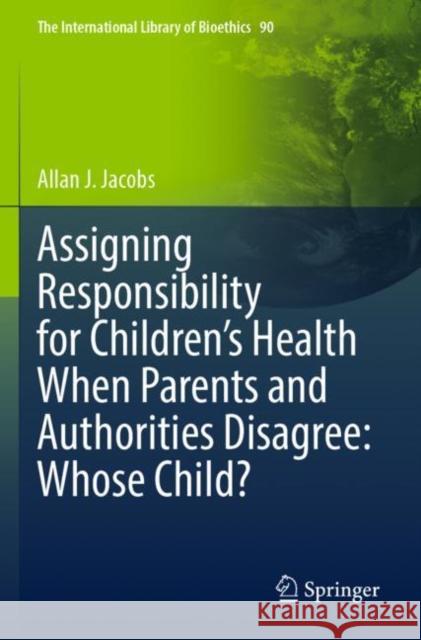Assigning Responsibility for Children’s Health When Parents and Authorities Disagree: Whose Child? » książka
Assigning Responsibility for Children’s Health When Parents and Authorities Disagree: Whose Child?
ISBN-13: 9783030877002 / Angielski / Miękka / 2022 / 310 str.
Assigning Responsibility for Children’s Health When Parents and Authorities Disagree: Whose Child?
ISBN-13: 9783030877002 / Angielski / Miękka / 2022 / 310 str.
(netto: 191,66 VAT: 5%)
Najniższa cena z 30 dni: 192,74
ok. 22 dni roboczych.
Darmowa dostawa!
This book provides a multidisciplinary analysis of the potential conflict between a government’s duty to protect children and a parent(s)’ right to raise children in a manner they see fit. Using philosophical, bioethical, and legal analysis, the author engages with key scholars in pediatric decision-making and individual and religious rights theory. Going beyond the parent-child dyad, the author is deeply concerned both with the inteests of the broader society and with the appropriate limits of government interference in the private sphere. The text offers a balance of individual and population interests, maximizing liberty but safeguarding against harm. Bioethics and law professors will therefore be able to use this text for both a foundational overview as well as specific, subject-level analysis. Clinicians such as pediatricians and gynecologists, as well as policy-makers can use this text to achieve balance between these often competing claims. The book is written by a physician with practical and theoretical knowledge of the subject, and deep sympathy for the parental and family perspectives. As such, the book proposes a new way of evaluating parental and state interventions in children's’ healthcare: a refreshing approach and a useful addition to the literature.
This book provides a multidisciplinary analysis of the potential conflict between a government’s duty to protect children and a parent(s)’ right to raise children in a manner they see fit. Using philosophical, bioethical, and legal analysis, the author engages with key scholars in pediatric decision-making and individual and religious rights theory. Going beyond the parent-child dyad, the author is deeply concerned both with the inteests of the broader society and with the appropriate limits of government interference in the private sphere. The text offers a balance of individual and population interests, maximizing liberty but safeguarding against harm. Bioethics and law professors will therefore be able to use this text for both a foundational overview as well as specific, subject-level analysis. Clinicians such as pediatricians and gynecologists, as well as policy-makers can use this text to achieve balance between these often competing claims. The book is written by a physician with practical and theoretical knowledge of the subject, and deep sympathy for the parental and family perspectives. As such, the book proposes a new way of evaluating parental and state interventions in children's’ healthcare: a refreshing approach and a useful addition to the literature.











